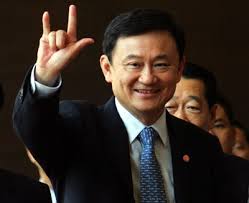
2006
— Sept. 19. The army topples Prime Minister Thaksin Shinawatra in a bloodless coup. The takeover follows months of protests led by the People’s Alliance for Democracy, known as the “Yellow Shirts,” who accused Thaksin of corruption and abuse of power.
2007:
— December: The People’s Power Party, a proxy for Thaksin’s disbanded Thai Rak Thai party, easily wins elections and later chooses veteran politician Samak Sundaravej as prime minister.
2008:
— May: The Yellow Shirts launch protests against Samak, accusing him of being Thaksin’s puppet.
— August: Thousands of Yellow Shirts take over the prime minister’s office compound and stay for three months. They later take over Bangkok’s two airports for a week, halting air travel.
— September: Samak is removed from office after a court rules payment for an appearance on a TV cooking show constituted conflict of interest. Parliament selects Somchai Wongsawat — Thaksin’s brother-in-law — as his successor.
— October: The Supreme Court sentences Thaksin to two years in prison for corruption. Thaksin had fled to Britain two months earlier to avoid the conviction.
— December: Protesters vacate the airports and the prime minister’s office after a court finds Somchai’s party guilty of electoral fraud and dissolves it. With the backing of the military, opposition Democrat Party leader Abhisit Vejjajiva is chosen prime minister.
2010:
— March: Pro-Thaksin “Red Shirt” protesters pour into Bangkok in a bid to drive Abhisit from power, kicking off protests that shut down parts of the city. Mysterious armed “men-in-black” serve as a militia for them.
— May: Soldiers storm the demonstrators’ camp, ending the protest. More than 90 die and around 1,800 are wounded during the protests, mostly demonstrators.
2011:
— July: The Thaksin-backed Pheu Thai party wins election by a landslide. Yingluck Shinawatra becomes Thailand’s first female prime minister.
2012:
— December: Former Prime Minister Abhisit and his deputy, Suthep Thaugsuban, are charged with murder for approving the May 2010 crackdown on Red Shirt protesters.
2013:
— August: The government introduces an amnesty bill covering political offenders since the 2006 coup, but excluding leaders.
— Nov. 1: The lower house of Parliament passes a version of the bill amended to cover political leaders including Thaksin. Public anger builds and the anti-Thaksin movement quickly gains strength, even as the government kills the bill.
— Nov. 24: Anti-government rallies in Bangkok by the People’s Democratic Reform Committee draw well over 100,000 people. The next day, tens of thousands of hardcore supporters besiege several government ministries and offices.
— Nov. 26: Suthep, who resigned from the Democrat Party to lead the protests, demands that the government be dissolved and an unelected “people’s council” be established. It would implement reforms to eliminate all vestiges of Thaksin’s political power.
— Dec. 1: Protesters fail to attain their declared “victory day” goal of seizing the prime minister’s offices and police headquarters. Heavy street fighting continues the next day.
— Dec. 3: Authorities allow protesters to make a symbolic occupation of the Bangkok police headquarters and prime minister’s offices. The government says it wanted to avoid further violence ahead of King Bhumibol Adulyadej’s birthday on Dec. 5.
— Dec. 9: Yingkluck announces she will dissolve the lower house of Parliament and call new elections on Feb. 2. An estimated 100,000 protesters march through Bangkok’s streets demanding that the country be purged of Thaksin’s influence.
— Dec. 21: The opposition Democrat Party announces it will boycott the election. The protesters have already said they will try to stop the polls, demanding “reform before election.”
— Dec. 26: Protesters block and then invade venue where election candidates are trying to register, setting off a melee with police. A policeman and a protester are killed. Candidate registration is also blocked in several southern provinces.
2014:
— Jan. 7: Thailand’s state anti-corruption body rules that 308 pro-government lawmakers acted illegally in passing a bill to make the Senate an all-elected body. The ruling calls for further investigation of the lawmakers, and could eventually result in their being banned from politics.
— Jan. 13: The protesters occupy seven major intersections in Bangkok in what they call an effort to shut down the capital and force Yingluck’s caretaker government to step down. They also cut electricity and water to several government ministries, and vow to stay until they obtain their goal.